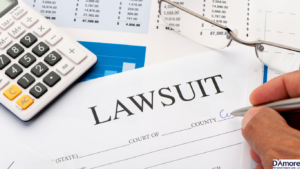
Breech Birth Complications: Legal Help for Families
Breech Birth Complications: Legal Help for Families A breech birth occurs when a baby is positioned feet- or buttocks-first during
D'Amore Personal Injury Law, LLC
Serious Injury Lawyers Proudly Serving
Baltimore, Annapolis, & Washington, D.C.
If you’ve recently been injured in a major accident and someone else was at fault, you may already know that you’re entitled to some compensation.
As a general rule, accident victims in Maryland (and throughout the United States) are entitled to recover monetary reimbursement from someone whose negligence causes them harm.
Nevertheless, getting full and fair compensation may require filing a claim or lawsuit against your own insurance company.
This fact surprises some people. Naturally, many policyholders simply assume that:
But in some cases, financial responsibility falls to your own insurer first — and insurance companies almost always fight to pay out as little as possible, even when it’s for their own customers.
Let’s look at a few situations in which you might need to sue your insurance company after an accident:
Insurance companies can be extremely aggressive when it comes to saving themselves money. They’ve gotten very good at denying claims over the years, as well as finding other ways to reduce payouts. But you aren’t at their mercy, and you shouldn’t have to settle for less than your policy promises you.
You’ll want to prepare your case carefully. Here are some preliminary steps to take:
Never make the mistake of agreeing to an insurance settlement without talking to an experienced attorney first. Don’t let the adjustor pressure you into an unfair deal. Don’t settle for less than you deserve.
The Baltimore personal injury lawyers at D’Amore Personal Injury Law are here to help. Let us fight to maximize your compensation. Call 877-712-1784 or contact us online to get started with a free, no-obligation consultation today.
Fill out the form below and we will contact you.
Or, give us a call at

Breech Birth Complications: Legal Help for Families A breech birth occurs when a baby is positioned feet- or buttocks-first during

The Role and Responsibilities of Medical Expert Witnesses in Legal Proceedings In medical malpractice cases, expert testimony plays a pivotal

Misdiagnosis and Delayed Diagnosis in Medical Malpractice A delayed diagnosis occurs when a medical condition isn’t identified in a timely